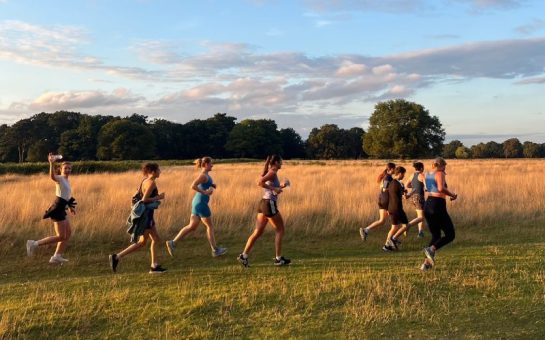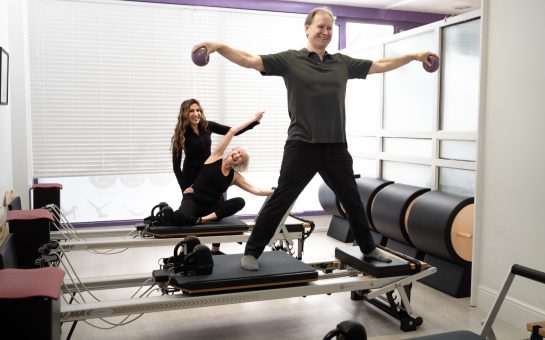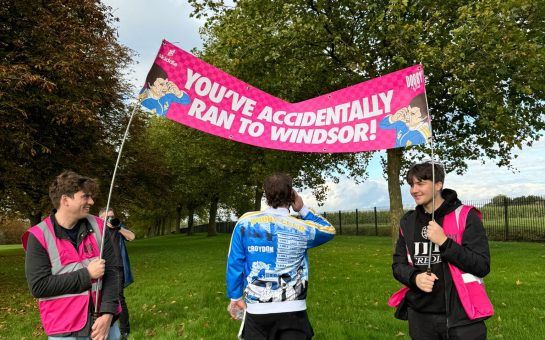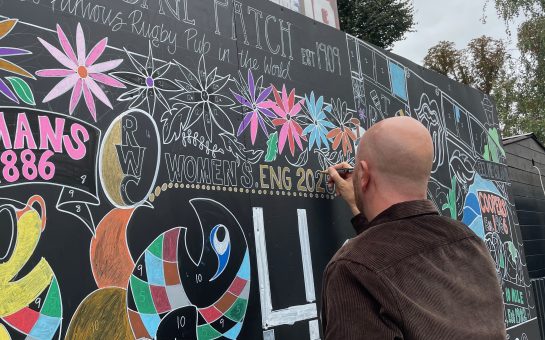Brutal, dangerous, vicious, and ruthless would be traditional adjectives used to describe the sport of boxing, but very little attention is given to the way it can help people’s mental health.
The sport can help to tackle isolation, discrimination or bereavement, which are key factors that can lead to people suffering from mental health issues.
A boxing gym is so often a place which reflects a close knit community, welcoming people from all walks of life no matter their story to channel their energy and thoughts into positive physical exercise, whilst developing discipline and a sense of structure to their lives.
Boxing Futures is a dynamic charity which works to improve the physical and mental wellbeing of disadvantaged young people, those who have suffered from isolation, inequality or poor mental health in general.
Anthony York and Andy Burley are the co-founders of Boxing Futures, which was established in 2013.
Wary of the some 900 boxing gyms across the country committed to those wanting to enter the sport to compete, York and his team implemented a non-contact basis for their work, to appeal to people who wanted to improve their physical wellbeing, whilst developing discipline to help tackle future obstacles in life.
York said: “For us it’s a lot more than boxing, it’s about the individual person and moving them from A to B, the journey they are going on and our duty in making them feel an important part of their community.”
‘Brothers through boxing’ and ‘Sisters through boxing’ are programmes offered at the boxing charity, with the fundamental aim of improving individuals physical and mental wellbeing through non-contact boxing.
The programme’s six month duration allows the coaches to build and develop relationships with the participants, as well as encouraging the fostering of friendships between one another.
Due to many of the members being individuals who have suffered from social isolation and discrimination, classes of 12 lead to a more intimate experience.
Boxing Futures works closely with the Movember Foundation, the leading charity supporting men’s mental health.
The charity’s findings that social isolation and loneliness were key factors in the thousands of male suicides that happen each year in the UK, led to their sponsoring of the Boxing Futures ‘Brothers through boxing’ programme.
Dr John Barry is one of the founders of the Male Psychology Network, with its ultimate aim of taking a lead in the promoting, awareness, research, and the understanding of male psychology.
Barry and his team through their research have identified the ‘talking cure’ as the prime means of help available to men.
However, unlike women, their research has found that although men may enjoy the act of conversation as a means of dealing with mental health issues, it is something they do not actively seek out like women.
Barry said: “There is a lot of value in being able to speak to someone from a familiar background such as yourself, or someone who is able to relate directly to the mental strains you are suffering, familiarity or relatability is what encourages deeper conversation.”
At Boxing Futures, the charity has employed a mental health councillor to ensure each individual has someone qualified to talk to as well as the coaches and fellow participants of the programme.
However, the councillor is part of the charity’s coaching team so that participants are not phased by the idea of speaking to a professional, something which might come across as rather daunting if you are someone prone to feeling uncomfortable voicing your personal struggles.
York has stressed that implementing the councillor within the coaching team has reaped rewards and encouraged participants throughout the programme to come out of their shells and be open with their personal battles.
The success that Boxing Futures mental health programmes have received resulted in the charity being approached by the John Howard Centre, a psychiatric unit in Hackney.
In response, Boxing Futures created a programme for patients within the unit to come down to their gym and participate in non-contact sessions with the aim of improving their physical health and channelling violent natures into disciplined thought out boxing classes.
Following the success of the programme, a further four were implemented for the John Howard Centre, with the unit reporting reduced violent and verbal aggression within the wards and significant weight loss amongst participating patients.
It has since become the John Howard Centre’s most subscribed programme.
Throughout both UK lockdowns, courtesy of the coronavirus pandemic, issues of isolation and loneliness have been at the forefront of discussion.
Boxing Futures through their following of the National Youth Agency guidelines have ensured they have been able to continue elements of their programmes through door step one on one training and general catch ups with members as well as outdoor classes.
Such measures have ensured the charity have been able to protect their members and provide them with welcomed company and interaction.
During a time where neglect could have well led to a troubled battle with the very issues Boxing Futures work to fight against with their programme participants.
The innovative and tireless work of Boxing Futures reflects what is being done at boxing charities and gyms across the country, and underlines the credible nature of the sport in helping to tackle individuals battles with mental health.
If you are someone who is struggling with loneliness and isolation and are looking for an outlet to feel a sense of belonging and improve your mental and physical wellbeing, be sure to visit Boxing Futures website to see how you can get involved.




